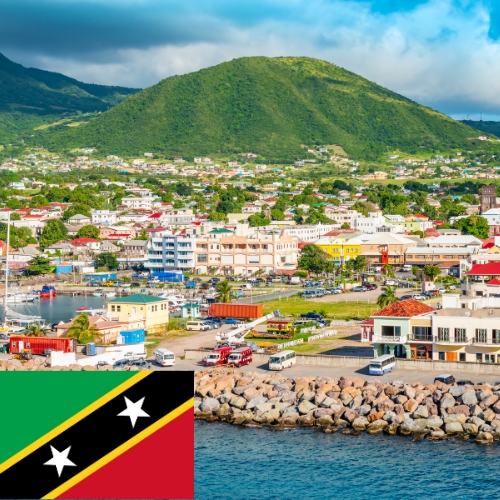Over 1,000 businesses partner with us for our company services. | Ready to register ? | Speak with our Experts |Over 1,000 businesses partner with us for our company services. | Ready to register ? | Speak with our Experts |
Table of Contents
Incorporation Details
Fee schedule
| Country | First year | Annual fee |
|---|---|---|
| Cayman | US$ 3,290 | US$ 3,090 |
*** To maintain good standing, your Cayman company must pay an annual renewal fee. This fee is a flat rate and free from hidden charges.
What’s included for 3290
● Incorporation of Company
● Cayman Government Registration Fees
● Registered Office for 1 year
● Registered Agent for 1 year
● Certificate of Incorporation
● Memorandum of Association
● Register of Members
● Membership Certificates
● Lifetime support
Why Cayman Islands
The Cayman Islands consists of a group of three islands in the Caribbean: Little Cayman, Cayman Brac and Grand Cayman. The main Island, Grand Cayman, is situated approximately 480 miles southeast of Miami.
The economy of the Islands is strong, enjoying full employment, with most of the revenue being derived from the financial services sector and tourism. Miami is one hour away by air, and the Island has direct air links with New York, Atlanta, Tampa, Houston and Jamaica. The Islands are a popular cruise ship stop.
The Cayman Islands-exempt company is the corporate vehicle of choice among international investment fund managers and investors. The popularity of the exempted company is principally a result of the Cayman Islands being rightly recognised as a stable jurisdiction for structuring international investments.
Benefits of opening a company in Cayman
- Well regulated and sophisticated jurisdiction
- Excellent infrastructure, communications and banking facilities
- Modern corporate legislation
- The Cayman Registry offers total confidentiality and does not permit access to company information held on file via company searches
- The country has attracted more than 100,000 exempt entities, many aimed at international commerce
- English is the official language
Types of Business Entities in Cayman
THE ORDINARY COMPANY
It is also known as the resident company. An ordinary company is allowed to function within the boundaries of Cayman Island. According to the company’s law, ordinary companies should have a registered office in the Cayman Islands and they should submit their annual reports as required by the registrar of companies.
These companies would require to obtain special licenses for business purposes like banking. They should also organize annual meetings. They should strictly abide by the rules and regulations of companies’ laws.
ORDINARY NON-RESIDENT COMPANIES
These companies cannot perform business in the Cayman Islands. They need a special certificate that states that they can do business on the Cayman Islands. They can receive non-resident status by applying to the ministry of finance via the registrar of companies.
The non-resident companies might look similar to that ordinary companies in some aspects but they cannot perform business just like the ordinary companies do on the Cayman Islands.
These companies are used to hold shares of foreign companies. They also need to submit their annual reports to the registrar of the companies. Their offices must maintain records and will be liable for public inspections.
CAYMAN ISLANDS EXEMPT COMPANY
This is the most commonly used form of business by foreign investors in the Cayman Islands. Foreign investors mostly prefer this because companies can receive certificate tax exemptions and certificates against future tax impositions. These certificates are usually given for 20 years but they are renewable and the company would receive benefits from operations outside of the Cayman Islands.
These companies should have at least one voting shareholder as well as a director. These companies are just like resident companies and ordinary non-resident companies need to submit their records to the registrar of companies. The member’s registers are not liable for public inspection. these companies don’t need to hold annual meetings as well. They can issue shares at nominal or par value.
They can express their capital in any currency. There are other forms of exempt companies as well. These include a limited duration company, a segregated portfolio company, and a special economic zone company. A limited duration company is a form of exempt company which has a span of 30 years. It must have less than two shareholders.
The articles of association of limited duration company requires unanimous resolution of all its shareholders if the company wants to transfer any of its share or other interest of a member of the company. The management of the company is duly done by its board members.
A segregated portfolio company is another form of exempt company. a segregated portfolio company can segregate the assets and liabilities of individual portfolios. the segregated portfolio companies are required to file returns on the basis of all the movements in the portfolio during the year.
A special economic zone company is that companies which can function in the special economic zones of the Cayman Islands. They need to declare why they need to function within a special economic zone of Cayman Islands.
OVERSEAS COMPANY
It is also known as a foreign company . These companies are incorporated in other nations and they want to do business within the Cayman Islands. A foreign company can apply for the overseas company status within 1 month of business commencement or acquiring the land.
The company which intends to acquire overseas company status must abide by the rules and regulations of part IX of the company’s law. Part IX is essential for foreign counties to hold land or commence business in the Cayman Islands. They would also have to go through many other legal formalities before they commence their business in the Cayman Islands.
THE LIMITED LIABILITY COMPANY
They have a separate legal identity. The members of such companies are not liable for the debts and liabilities of the company. The exempted companies which are currently functioning on the Cayman Islands can be merged into a limited liability company or be converted to a limited liability company.
The company is liable to file annual returns to the registrar of the company every January. They also need to pay an annual fee every year. Forming a limited liability company has its own set of legal formalities and has to pay a fixed fee.
UNLIMITED COMPANY
It is the company that can be incorporated with or without capital. But shareholders’ liabilities are not limited. The shareholders of the company are liable to meet any deficiency in the company’s capital or to settle outstanding debts when the company is stopping its functions. The company will have to mention in the article the number of board members and the amount of share capital.
FOUNDATION COMPANY
Just like the limited liability companies, foundation companies have a separate identity and can be formed by a single person for any lawful objectives.it should be permitted by the law and there is no requirement for these companies to be beneficial to another person.
A company that is currently functioning in the Cayman Islands can be converted to a foundation company or a new company can be registered as a foundation company. these companies must be limited by shares or guarantees with or without share capital. The memorandum and article of the association are the constitutive documents of the foundation company.
ASSOCIATIONS ARE NOT FOR PROFITS
It is usually formed for the purpose of education, religion, and charity.it is approved by the governor of the Cayman island. It is also formed as a limited company. Association not for profits doesn’t have to publish their name or constituent members to the registrar. Any profits earned by the association, not for profits would be mainly used for the purpose of religion, education as well as charity.
The members of the association of such organizations are barred from receiving any dividends. These companies are required to register as non-profit organizations if they fulfill the criteria for the same.
Incorporation Procedure
Documents from individuals:
- Certified Copy of a Passport
- Certified Copy of a Utility Bill e.g., Gas / Electrical or Bank Statement (dated within the last 3 months)
- 3 Proposed company name
- Completed Application Form (we will provide).
Documents from legal entities:
- Copy of the Certificate of Incorporation;
- Copies of incorporation documents (Articles of Association and Memorandum of Association).
- Register of directors/shareholders/members
Note: Where documents are in a language other than English, a certified translation of the full document into English must be provided, with the original document.
Company Structure
- Minimum Number of Directors: One, who may be a natural person or a corporate body.
- Minimum Number of Shareholders: One, which can be the same entity as the director.
- Beneficial Owners: While beneficial owners are not part of public records, you must provide this information to the Registered Agent who maintains confidentiality.
Timeline
Once we have received all the required identification documents, the company formation process will take approximately 7 working days subject to compliance review.
Taxation Policies
Country Reviews
Related Jurisdiction
Follow the right path with the right procedure
STEP 01
Select package and submit KYC documents
STEP 02
Sign application forms and do due diligence requirements
STEP 03
Submit the application and receive corporate documents
STEP 04
Annual registration renewal to keep business in good standing














Reviews
There are no reviews yet.